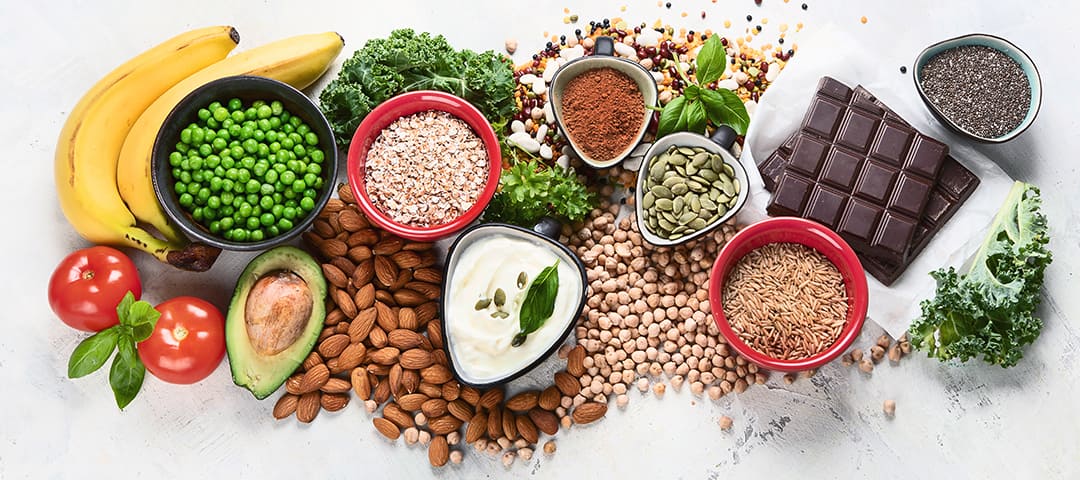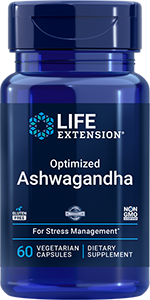
Newsletter
Newsletter
Consuming more magnesium associated with lower risk of mortality during years following heart attack

A study of people with a history of heart attack found that those who consumed more magnesium lived longer than those whose intake was low. Having a high magnesium intake, defined as greater than 320 milligrams (mg) per day, was associated with a 28% lower risk of dying from cardiovascular disease and a 22% lower risk of death from any cause compared to a low intake, defined as less than 283 mg per day.
The protective effect of magnesium was even stronger in patients who were being treated with diuretic drugs. In this group, the risk of mortality from cardiovascular disease was 45% lower among those with high magnesium compared to those with low magnesium.
“Little is known about magnesium intake and long-term mortality risk in cardiovascular disease patients,” authors Ilse Evers and colleagues noted. “Magnesium requirements may be different in cardiovascular disease patients because of alterations in the cardiovascular system, comorbidities and/or medication use.”
The study included 4,365 participants in the Alpha Omega Cohort, an ongoing follow-up of participants in the earlier 40-month Alpha Omega Trial. The Alpha Omega Trial included men and women between the ages of 60 and 80 years who had experienced a heart attack within 10 years prior to enrolling between 2002 and 2006. Dietary questionnaire responses obtained at enrollment provided information concerning magnesium intake from food and non-food sources. Mortality was ascertained through 2018. The findings were published on August 12, 2022, in Frontiers in Cardiovascular Medicine.1
Products
Apply What You’ve Learned: Magnesium and Cardiovascular Disease
- High serum or plasma levels of magnesium have been associated with a lower risk of cardiovascular disease, ischemic heart disease and fatal ischemic heart disease.2 Red blood cell magnesium is another way to assess magnesium levels.
- Magnesium intake may help support a healthy heart rhythm. In a study of 82 patients who underwent coronary artery bypass grafting heart surgery, orally administered magnesium was as effective as intravenous magnesium in the prevention of low magnesium levels and was associated with a greater reduction in arrhythmias, which are common following the procedure.3
- Magnesium depletion can occur in people who use thiazide diuretics, which physicians often prescribe to individuals with cardiovascular disease.1 A trial found that women treated with the drugs who received magnesium had lower blood pressure after six months compared to those who received a placebo. While participants who received a placebo experienced an increase in a measure of arterial plaque build-up, this remained unchanged in the magnesium group.4
- Among participants in the National Health and Nutrition Education Survey (NHANES) 2015-2018, the total usual intake of magnesium among 49% of men and 44% of women aged 19 years and older did not meet the estimated average requirement for the mineral.5 Increased magnesium intake can help improve this insufficiency.
References
- Evers I et al. Front Cardiovasc Med. 2022 Aug 12;9:936772.
- Del Gobbo LC et al. Am J Clin Nutr. 2013 Jul;98(1):160-73.
- Jannati M et al. Braz J Cardiovasc Surg. 2018 Sep-Oct;33(5):448-453.
- Cunha AR et al. J Hypertens. 2017 Jan;35(1):89-97.
- USDA, Agricultural Research Service, 2021. Total Usual Nutrient Intake from Food, Beverages, and Dietary Supplements, by Gender and Age, What We Eat in America, NHANES 2015-2018. https://www.ars.usda.gov/ARSUserFiles/80400530/pdf/usual/Usual_Intake_Gender_WWEIA_2015_2018_Tables_TA.pdf
Featured Life Extension Magazine® Article
Shed Belly Fat: The Mediterranean Way, by Michael Downey
Taking Moro orange fruit extract helped decrease weight and fatty tissue in a clinical trial that included 136 overweight but otherwise healthy adults.
Participants who took daily Moro orange extract for 6 months experienced, on average, a 4.2% decrease in weight, compared to a 2.2% decrease among participants who received a placebo; a 1.2 kg/m2 reduction in body mass index (BMI), compared to 0.6 kg/m2 in the placebo group; a 1.5-inch reduction in waist circumference, compared to 0.7 inches in placebo recipients; and a 7.5% decline in fat mass, compared to 5.7% in the placebo group.
Read Full Article
What's Hot
Health Concern
Greater magnesium intake associated with lower risk of fatal heart disease, sudden cardiac death in women
The January 2020 issue of the Journal of Women's Health revealed the findings of Charles Eaton, MD, of Brown University’s Alpert Medical School and colleagues of a lower risk of fatal coronary heart disease and sudden cardiac death among women who had a higher intake of the mineral magnesium.

Atherosclerosis and Cardiovascular Disease
Comprehensive blood testing helps identify and target specific risk factors, targeting a treatment regimen that can be used to preserve and improve cardiovascular health.
Related Life Extension Magazine® Articles

How Magnesium Lowers Cardiovascular Disease Risk
Studies continue to show that boosting magnesium levels can lower blood pressure, promote arterial relaxation, fight arterial calcification, and improve endothelial function. Most Americans are magnesium deficient.

Magnesium Deficit and Hypertension
In the U.S., more than 63% of people do not ingest enough magnesium to meet minimum daily requirements. New research shows how insufficient magnesium intake contributes to the hypertension epidemic afflicting aging adults.
Life Extension Magazine® Issue Now Online
A remarkable number of healthy-longevity findings have been published over the past 18 months.
AMPK Metabolic Activator (item #02207): This supplement should be taken in conjunction with a healthy diet and regular exercise program. Individual results are not guaranteed, and results may vary.




